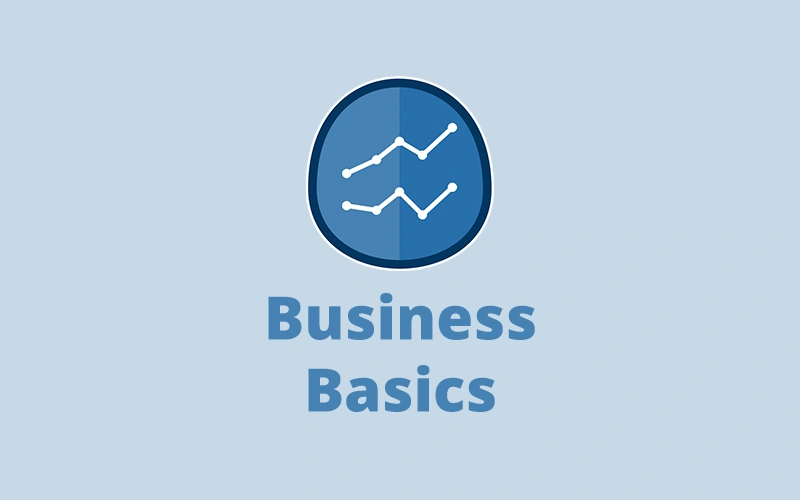Stepping into the professional world can sometimes feel like entering a new culture with its own set of rules and expectations. Understanding the fundamental principles of how businesses operate, grasping essential concepts, and knowing how to meet professional expectations are crucial for navigating any workplace with confidence and contributing effectively from day one. This post, part of our career skills series, will provide you with that foundational knowledge.
Why Understanding Business Basics Matters
Whether you work for a large corporation, a small startup, or a non-profit organisation, a solid understanding of business basics empowers you to see the bigger picture, make informed decisions, and align your actions with the organisation’s goals.
A Grasp of Business Basics Benefits Individuals by:
- Increased Confidence: Understanding how a business functions demystifies the workplace and allows you to operate with greater assurance.
- Improved Decision-Making: Knowledge of business concepts helps you understand the rationale behind decisions and make more informed choices in your own role.
- Enhanced Communication: Familiarity with business terminology and processes facilitates clearer communication with colleagues and stakeholders.
- Greater Career Advancement Potential: Showing an understanding of the broader business context demonstrates initiative and a strategic mindset, making you a more valuable asset.
For Organisations, Employees with a Solid Grasp of Business Basics Translate to:
- More Engaged and Informed Workforce: Employees who understand the company’s objectives and operations are more invested in its success.
- Improved Efficiency and Productivity: When employees understand how their work contributes to the overall goals, they can work more effectively.
- Better Alignment Across Departments: A shared understanding of business basics fosters better collaboration and alignment between different teams.
- Stronger Organisational Performance: A workforce that is business-savvy contributes to the overall financial health and success of the organisation.
Key Elements of Business Basics
- Understanding How Workplaces Function
- Organisational Structure: Recognising different types of organisational structures (e.g., hierarchical, flat, matrix) and understanding how authority and communication flow within them.
Practice: Take the time to understand the organigram of your current or prospective company. Identify reporting lines and how different departments interact. - Departmental Roles and Responsibilities: Understanding the distinct functions of different departments (e.g., Sales, Marketing, Finance, Operations, Human Resources) and how they contribute to the overall business.
Practice: Learn about the roles of colleagues in different departments. Understand how their work impacts your own and the company’s objectives. - Business Processes and Workflows: Gaining insight into the common processes and workflows that drive the organisation’s operations.
Practice: Try to map out the key processes related to your work. Understand the steps involved and who the key stakeholders are.
- Organisational Structure: Recognising different types of organisational structures (e.g., hierarchical, flat, matrix) and understanding how authority and communication flow within them.
- Grasping Essential Business Concepts
- Basic Financial Literacy: Understanding fundamental financial terms like revenue, expenses, profit, loss, and cash flow.
Practice: Familiarise yourself with basic financial statements (even at a high level). Understand how your department’s activities might impact these metrics. - The Concept of Value Creation: Understanding how businesses create value for their customers and how different roles contribute to this process.
Practice: Reflect on how your work directly or indirectly contributes to the value the company provides to its customers. - The Importance of Customer Focus: Understanding that businesses exist to serve their customers and how customer satisfaction drives success.
Practice: Consider how your role impacts the customer experience, even if you don’t directly interact with clients. - The Role of Strategy and Planning: Understanding that businesses operate with strategic goals and plans to achieve those goals.
Practice: Try to understand your company’s mission, vision, and strategic objectives. See how your team’s goals align with the broader strategy.
- Basic Financial Literacy: Understanding fundamental financial terms like revenue, expenses, profit, loss, and cash flow.
- 3. Learning How to Meet Professional Expectations
- Professional Communication: Adhering to professional standards in all forms of communication, including email etiquette, meeting conduct, and verbal interactions (building on our earlier post about communication skills).
Practice: Review your email habits and ensure they are professional. Pay attention to your behaviour and language in meetings. - Time Management and Organisation: Being punctual, meeting deadlines, and managing your workload effectively (as discussed in our “Work-Ready Skills” post).
Practice: Utilise time management techniques and tools to stay organised and meet deadlines consistently. - Professional Demeanour and Ethics: Maintaining a respectful, ethical, and positive attitude in the workplace.
Practice: Be mindful of your behaviour and interactions with colleagues. Adhere to the company’s code of conduct and ethical guidelines. - Adaptability and Initiative: Being open to change, willing to learn new things, and taking initiative to contribute beyond your core responsibilities.
Practice: Embrace new challenges and be proactive in seeking out opportunities for learning and growth within the company.
- Professional Communication: Adhering to professional standards in all forms of communication, including email etiquette, meeting conduct, and verbal interactions (building on our earlier post about communication skills).
Developing a strong understanding of business basics provides you with a crucial framework for navigating the professional world. This knowledge not only enhances your individual performance but also enables you to contribute more meaningfully to your organisation’s success and build a confident and fulfilling career.
In our final post of this series, we’ll focus on “Looking After Yourself”, exploring the vital aspects of work-life balance, stress management, and staying motivated for long-term career wellbeing.
Stay Connected: Subscribe to our newsletter and follow us on social media to get notified when new content is published. We’d love to hear from you! Share your thoughts and experiences in the comments below.

